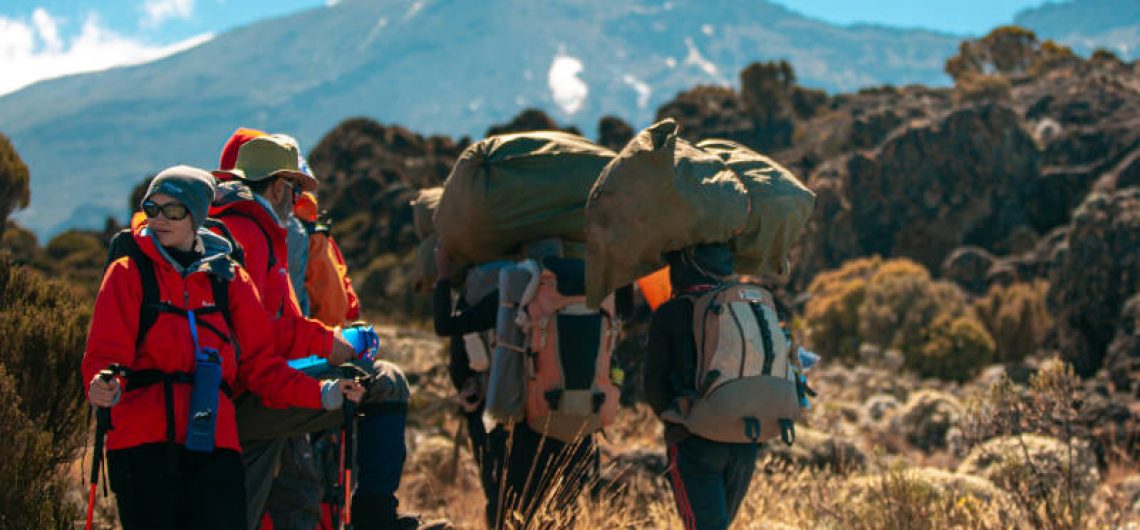Technically, it is possible to climb Kilimanjaro without porters, but it is not recommended, and it is not a common practice. Porters play a crucial role in supporting trekkers during their Kilimanjaro ascent. They carry essential supplies, camping gear, and food, allowing climbers to focus on the climb without the burden of heavy loads.
Kilimanjaro is a challenging and high-altitude trek, and it requires a significant physical and mental effort to reach the summit. Carrying heavy equipment and supplies can be exhausting and might hamper your ability to enjoy the experience fully.
Furthermore, the Kilimanjaro National Park Authority mandates that all trekkers must be accompanied by a team of guides, cooks, and porters for safety and conservation reasons. This regulation ensures that the environment is protected, and climbers receive the necessary support and assistance during the journey.
Hiring porters not only benefits climbers by lightening their load but also provides employment opportunities for local communities. Many porters come from nearby villages, and their income from trekking supports their families and local economies.
By choosing to climb Kilimanjaro with a team of porters and guides, you contribute to responsible and sustainable tourism in the region. It also allows you to focus on the breathtaking landscapes and the unique experience of ascending Africa’s highest peak without unnecessary worries.
Read about our porters and mountain crew here
The important role that porters play while climbing Kilimanjaro
Using porters is of paramount importance for several reasons:
- Lighten the Load: Porters shoulder the burden of carrying heavy equipment, tents, food, and other supplies, allowing trekkers to focus on their own physical and mental endurance during the climb. Without porters, climbers would have to carry everything themselves, making the trek much more strenuous and challenging.
- Safety and Support: Porters are experienced in mountain terrain and familiar with the trekking routes. They provide essential support and guidance, ensuring trekkers navigate the paths safely. In case of emergencies or injuries, porters can assist and seek help promptly.
- Sustainable Tourism: Hiring local porters supports the local communities around Kilimanjaro. The income generated from porter wages helps improve their livelihoods, provides education for their families, and contributes to the local economy.
- Environmental Conservation: Porters and guides play a significant role in promoting responsible trekking practices. They ensure that the trail and camping sites are left clean and free from litter, preserving the pristine environment of Kilimanjaro for future generations.
- Preservation of Culture: Engaging with porters allows trekkers to learn about the local culture and traditions of the communities living around Kilimanjaro. This cultural exchange enriches the trekking experience and fosters mutual respect and understanding.
- Higher Chance of Success: With the support of porters, trekkers can better acclimatize to the high altitude and focus on their physical well-being. This improves the chances of successfully reaching the summit of Kilimanjaro.
- Ethical Trekking: By hiring porters through reputable trekking companies, you ensure that they are treated fairly, and provided with adequate equipment, clothing, and fair wages. Ethical trekking practices prioritize the well-being and dignity of the porters.
So using porters not only enhances the overall trekking experience on Kilimanjaro but also promotes sustainable and responsible tourism. It fosters a positive impact on the local communities and the environment, making the journey more meaningful and rewarding for both trekkers and the people of Tanzania.
Related: Can you climb Kilimanjaro without a guide?
![]()


Comments